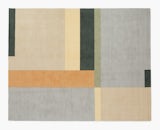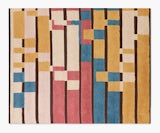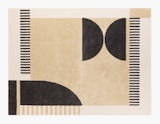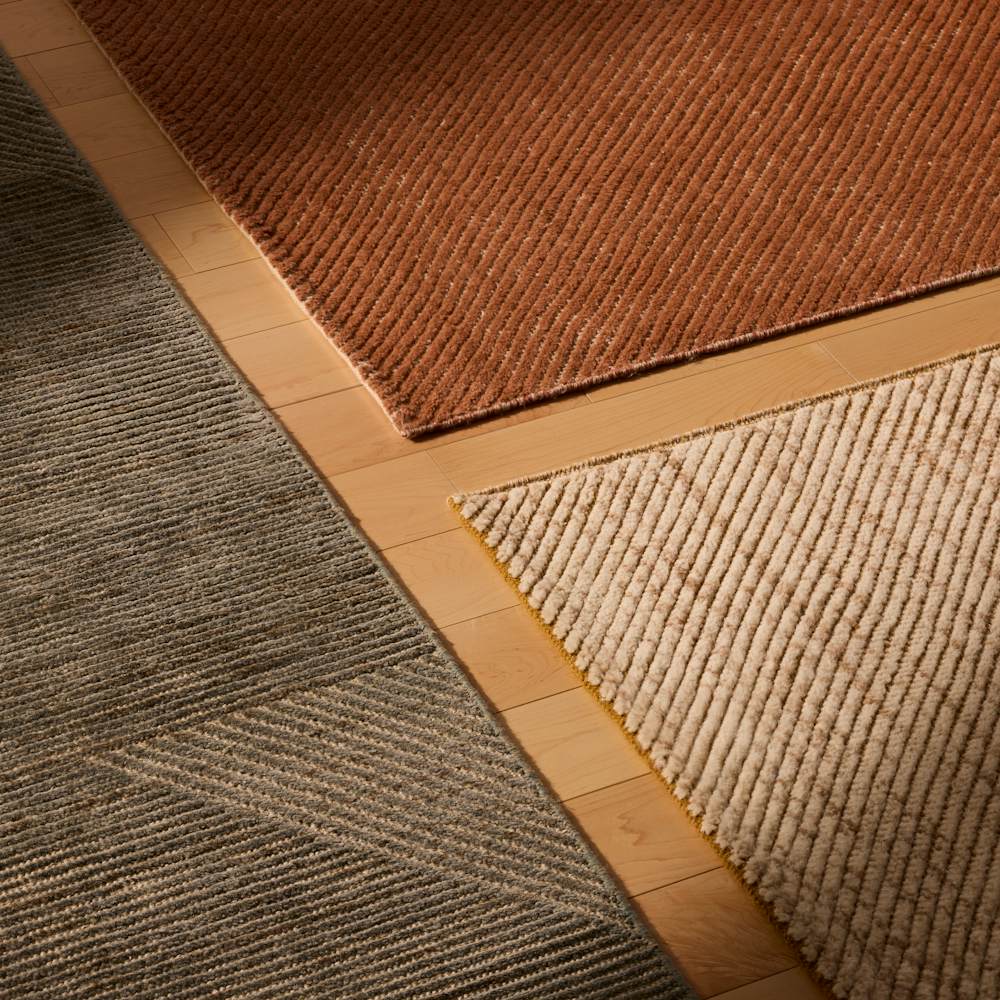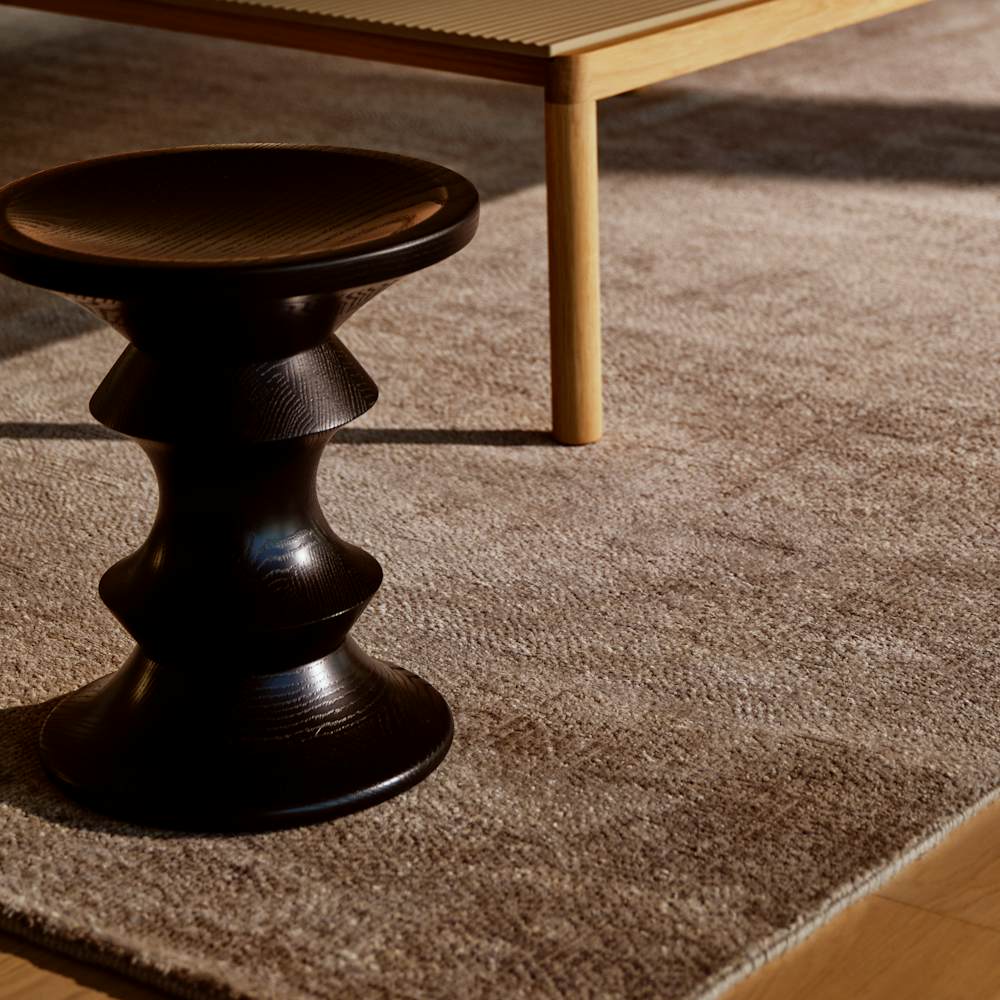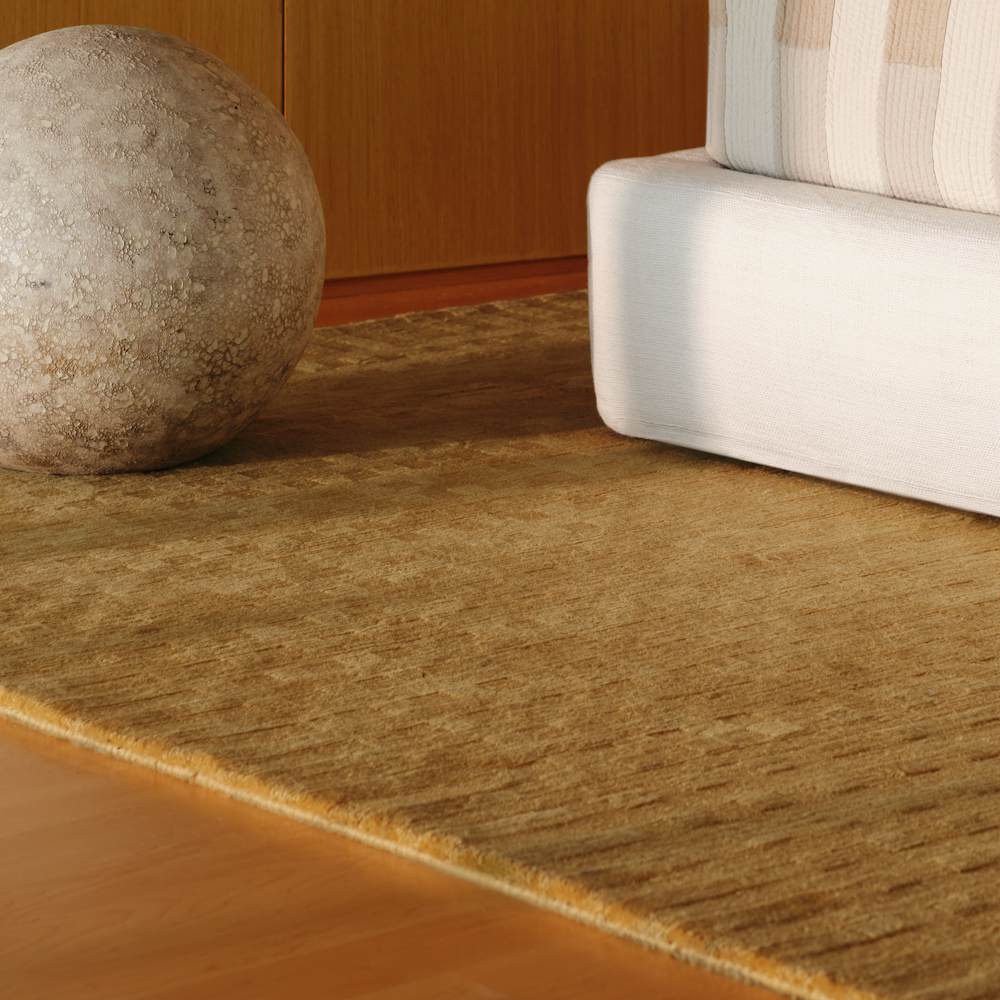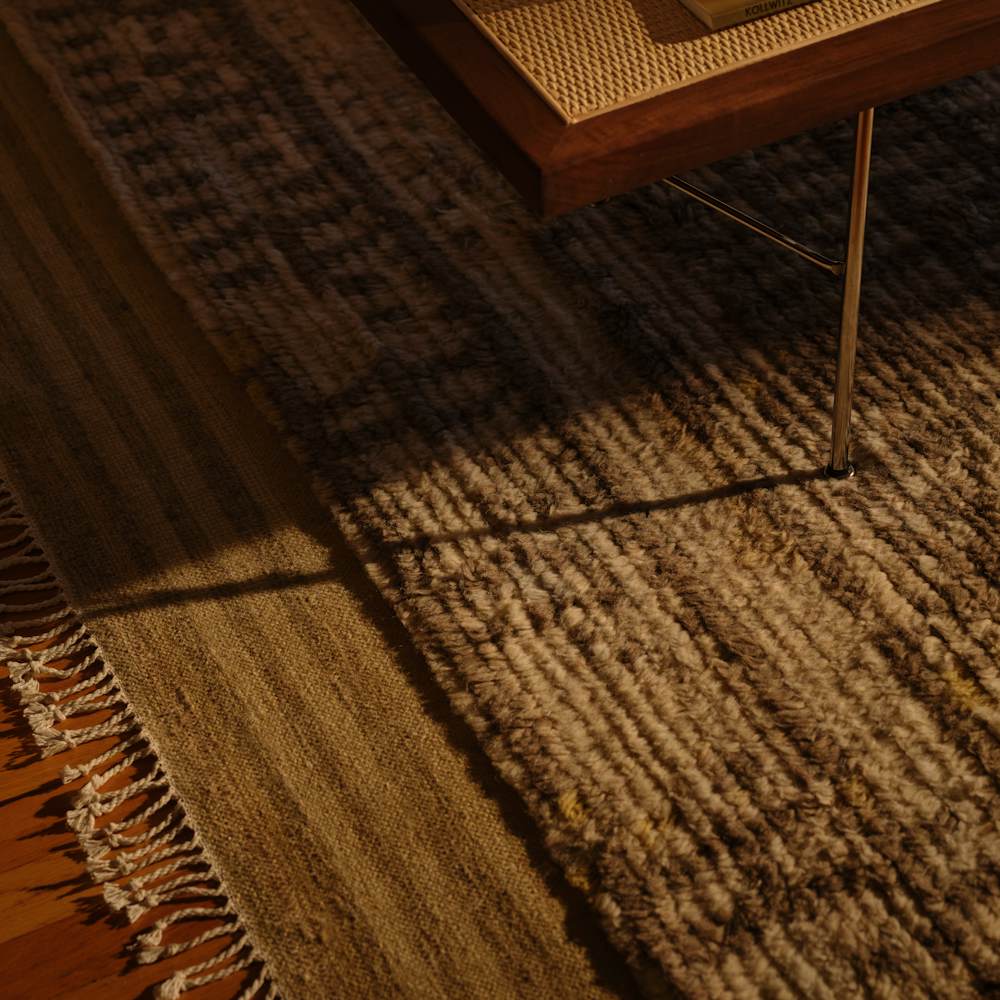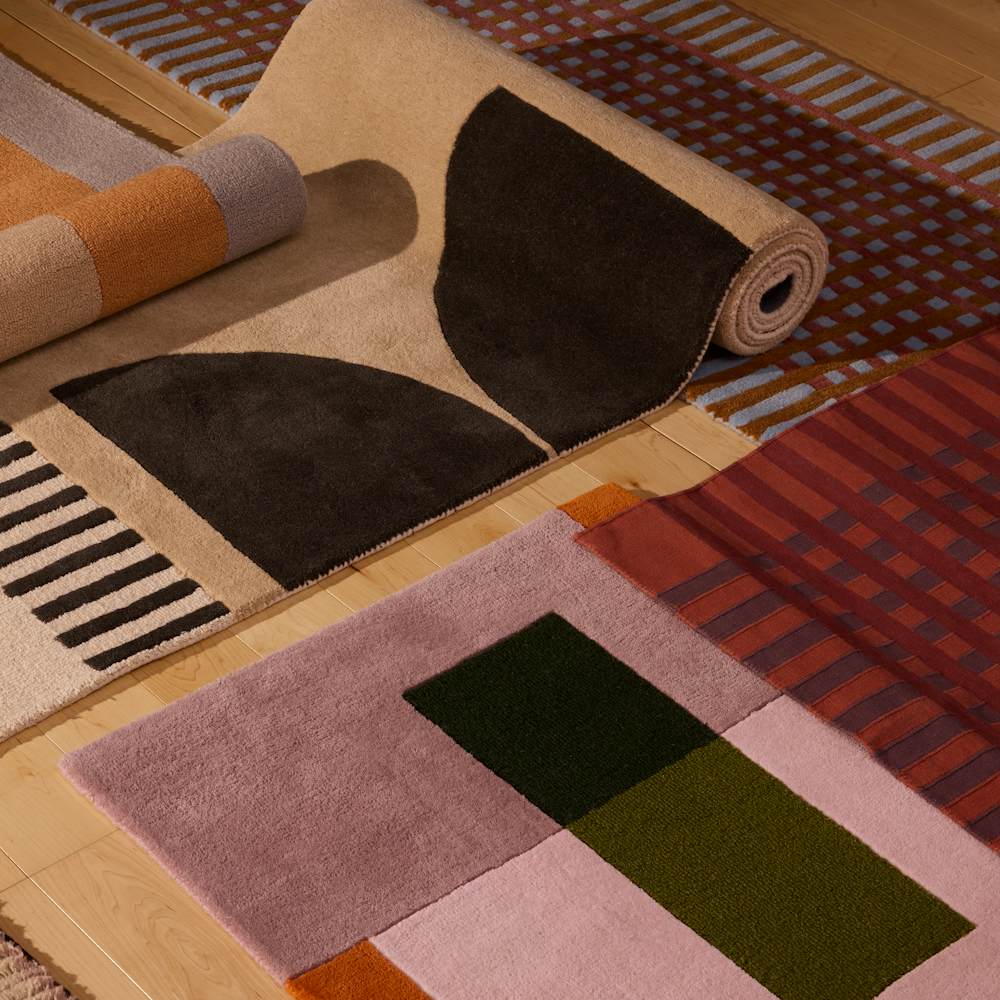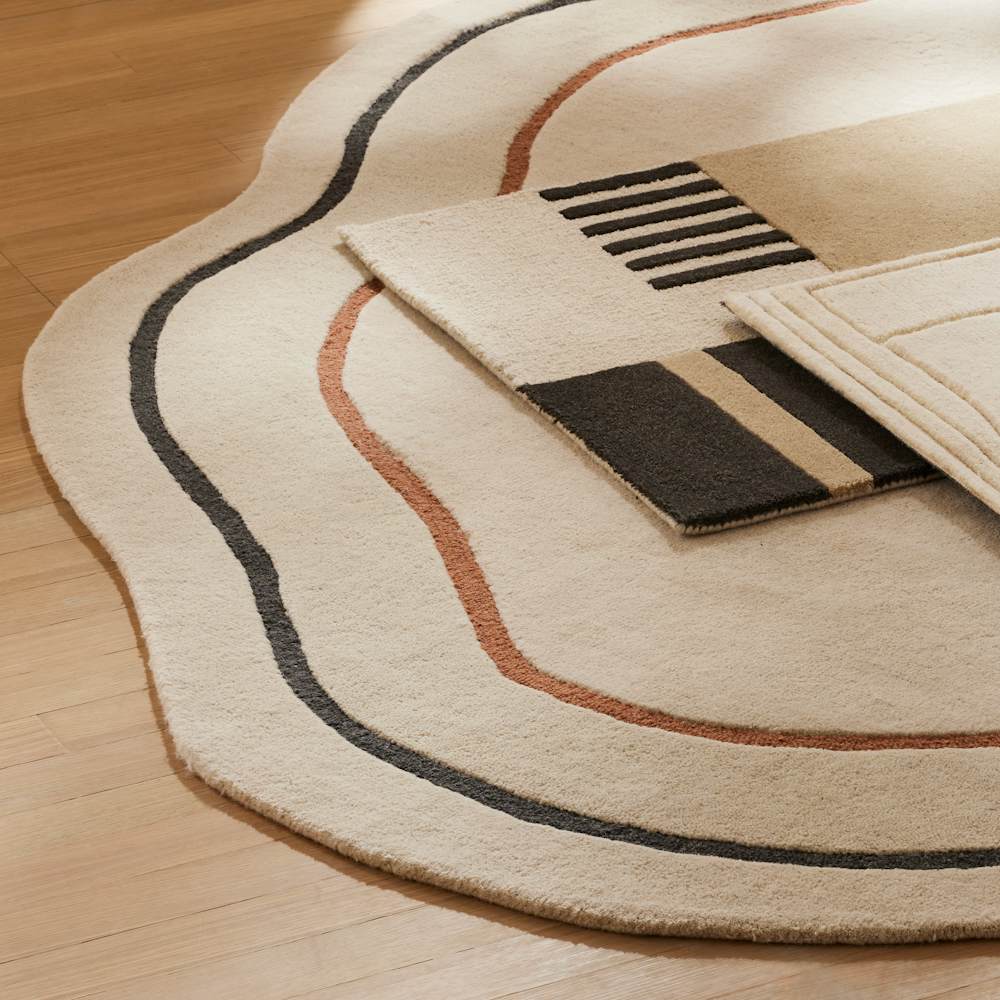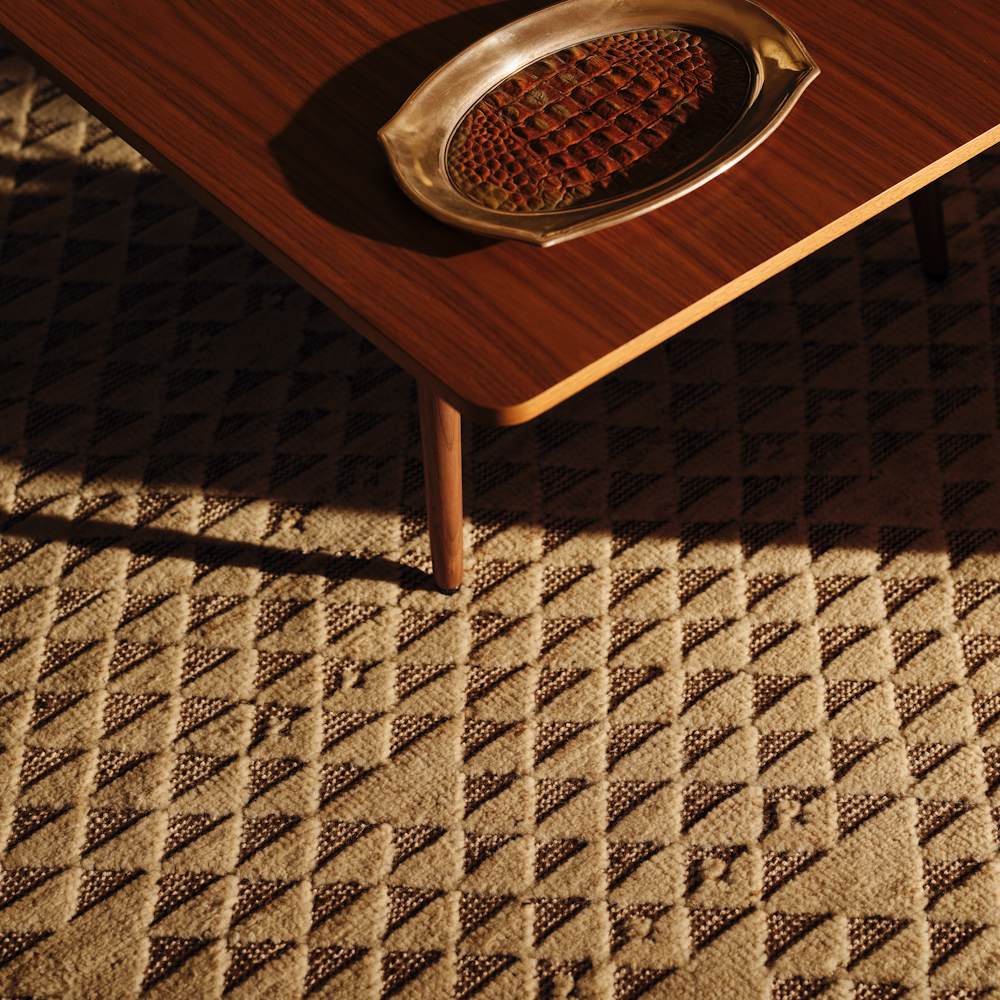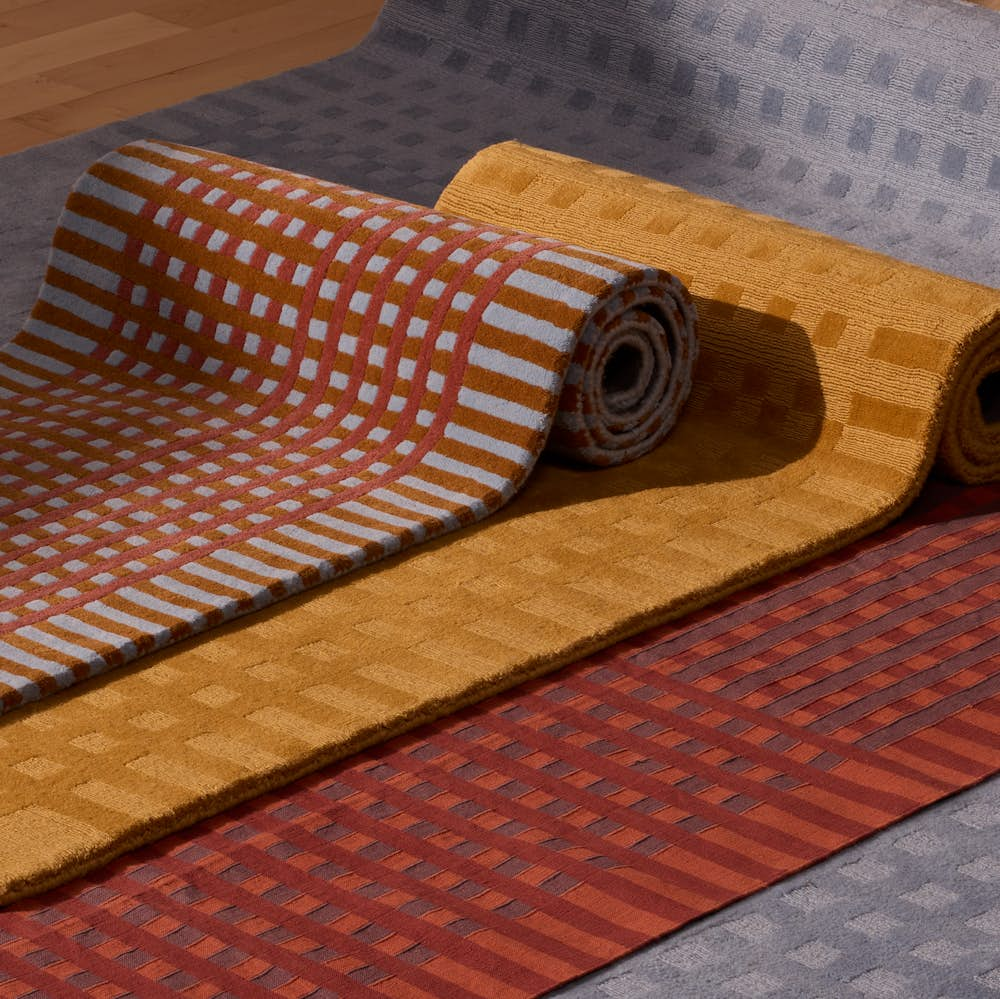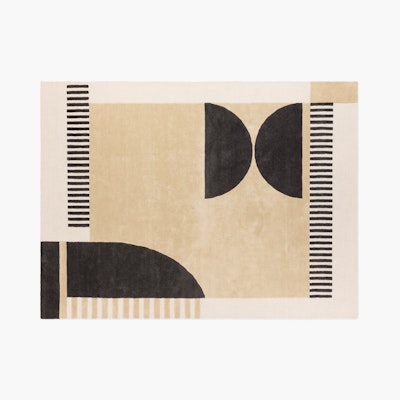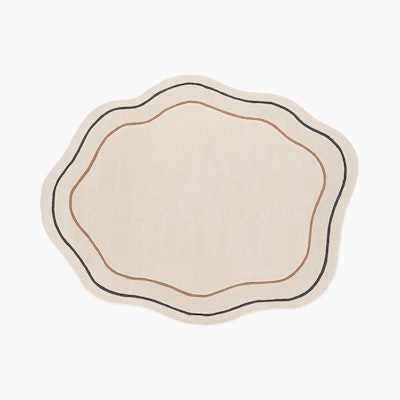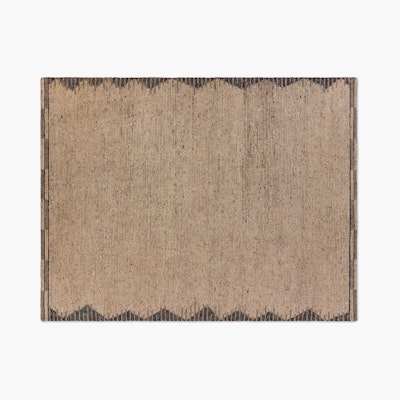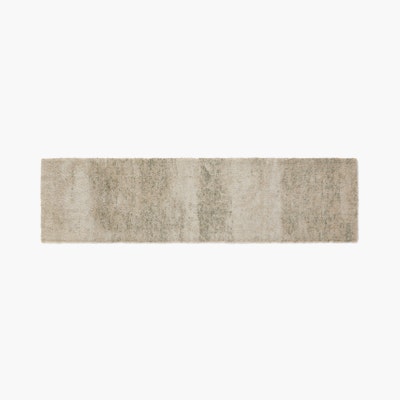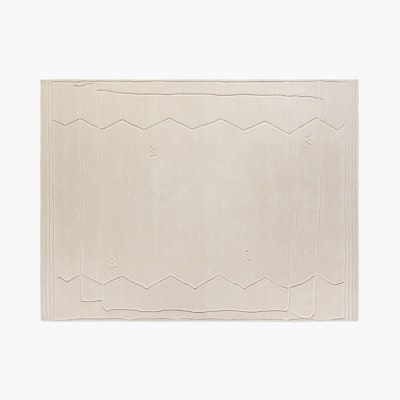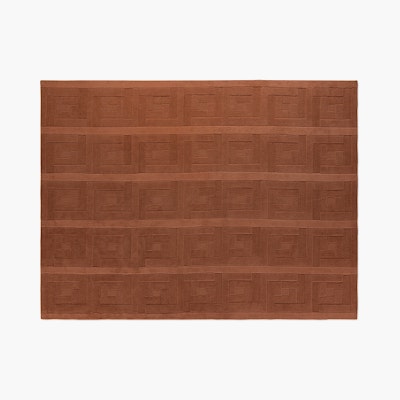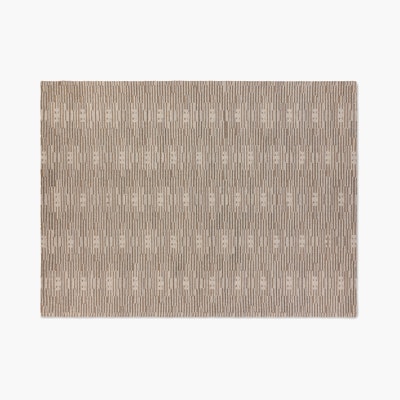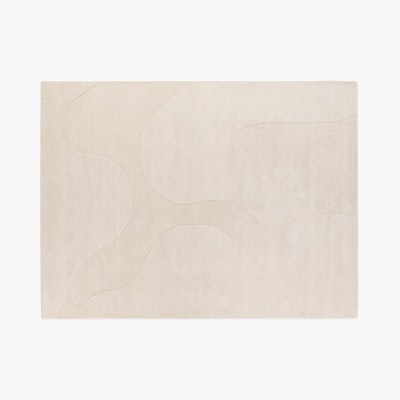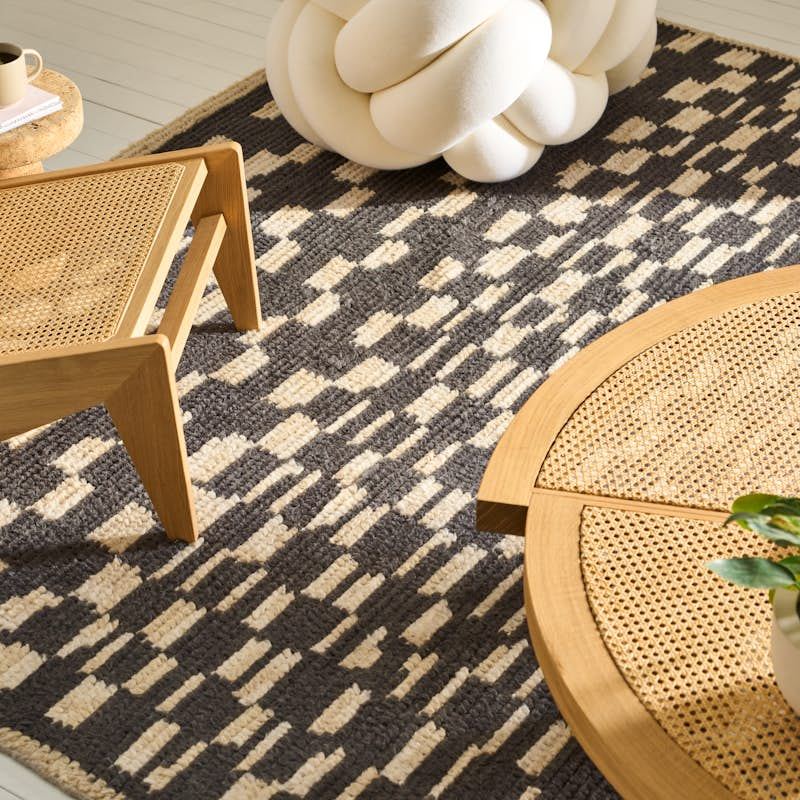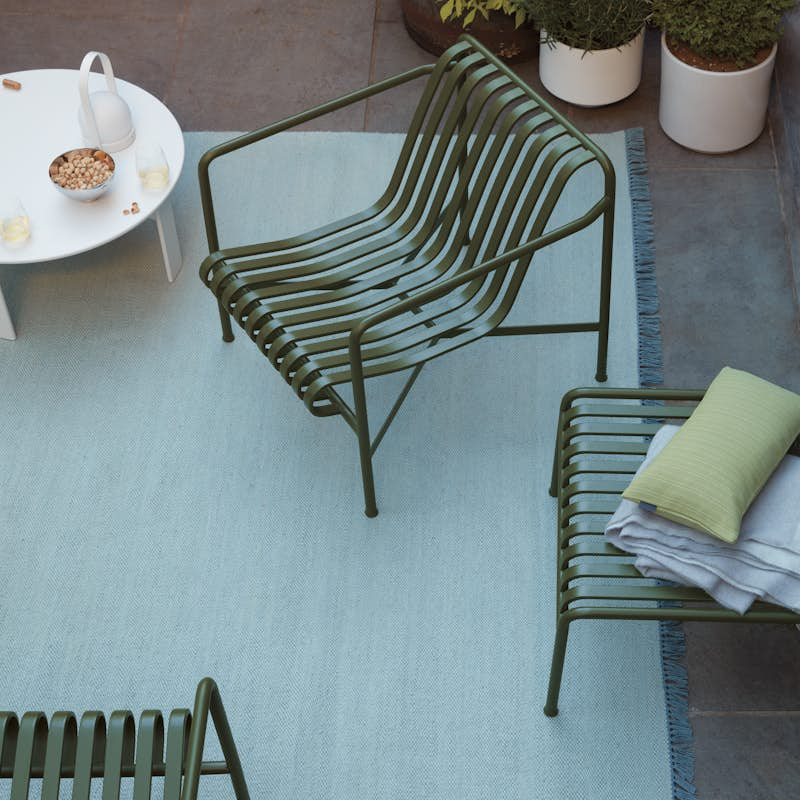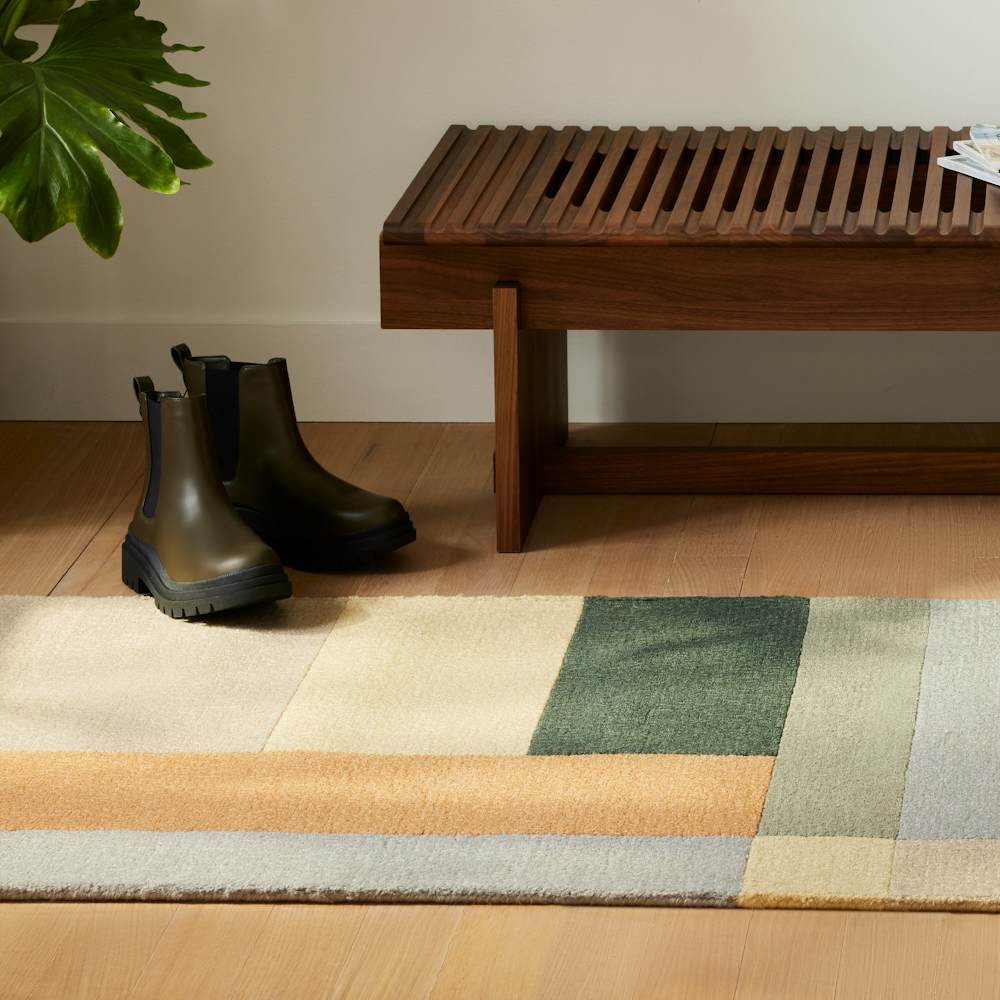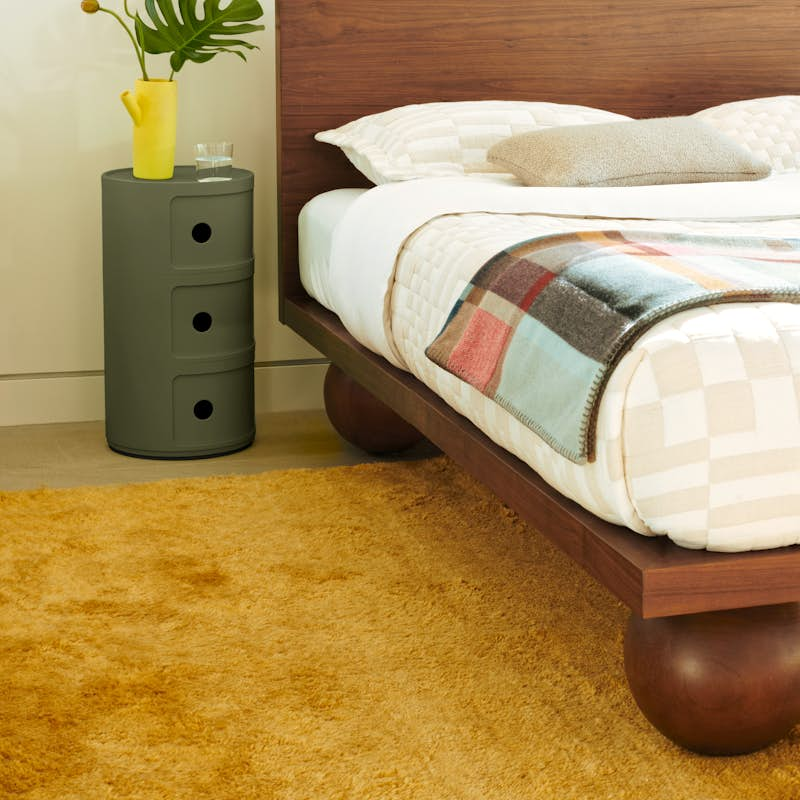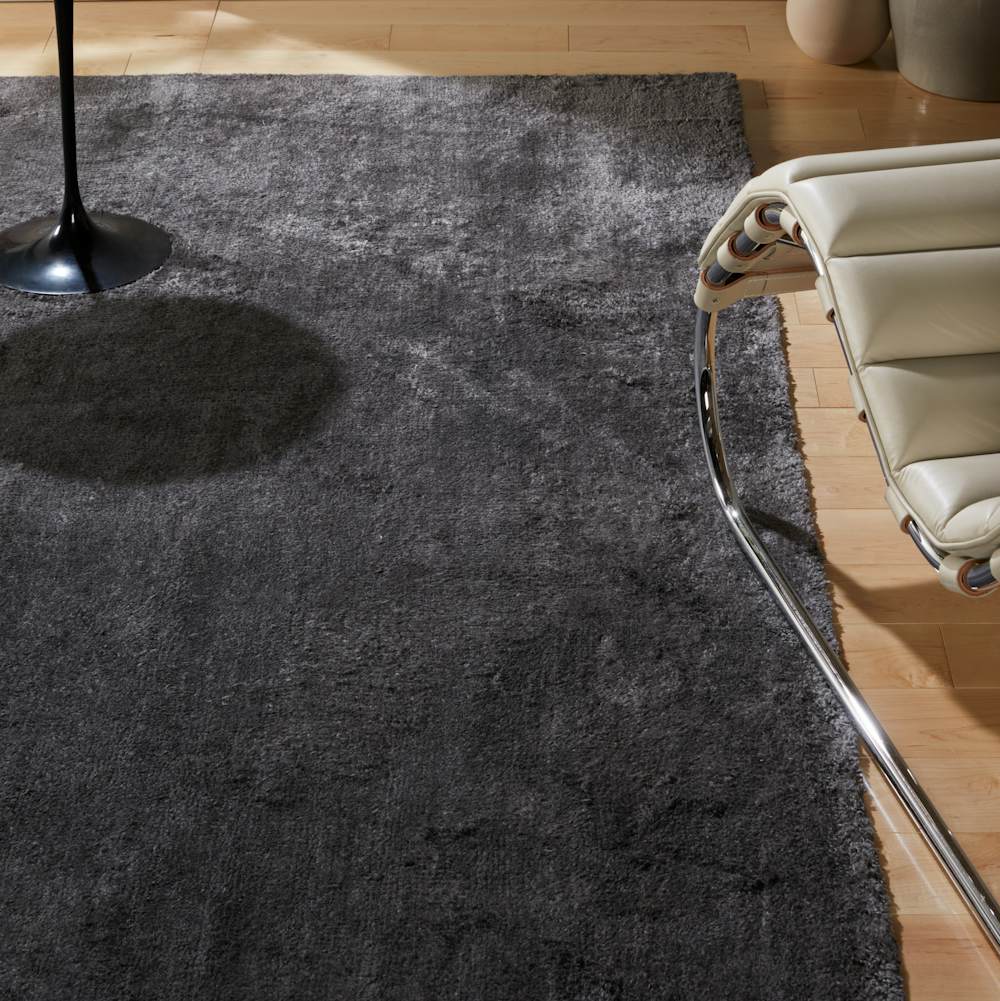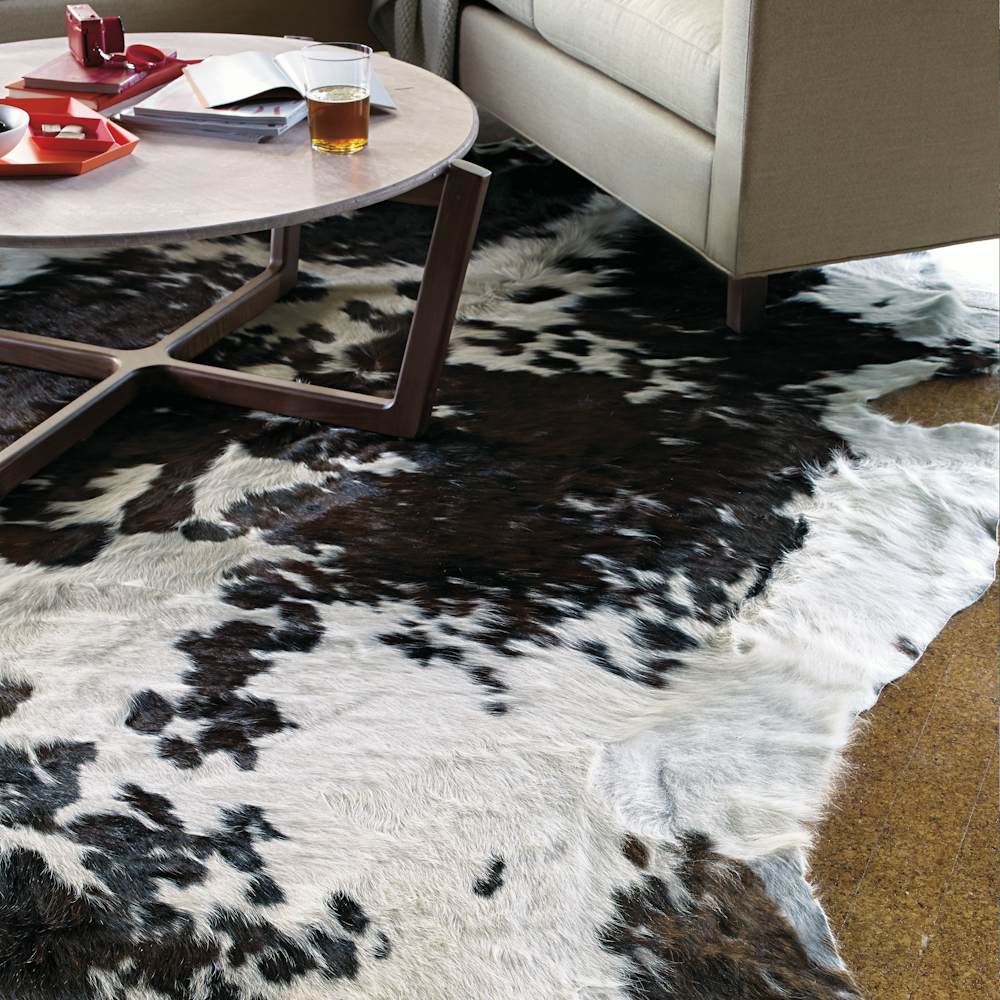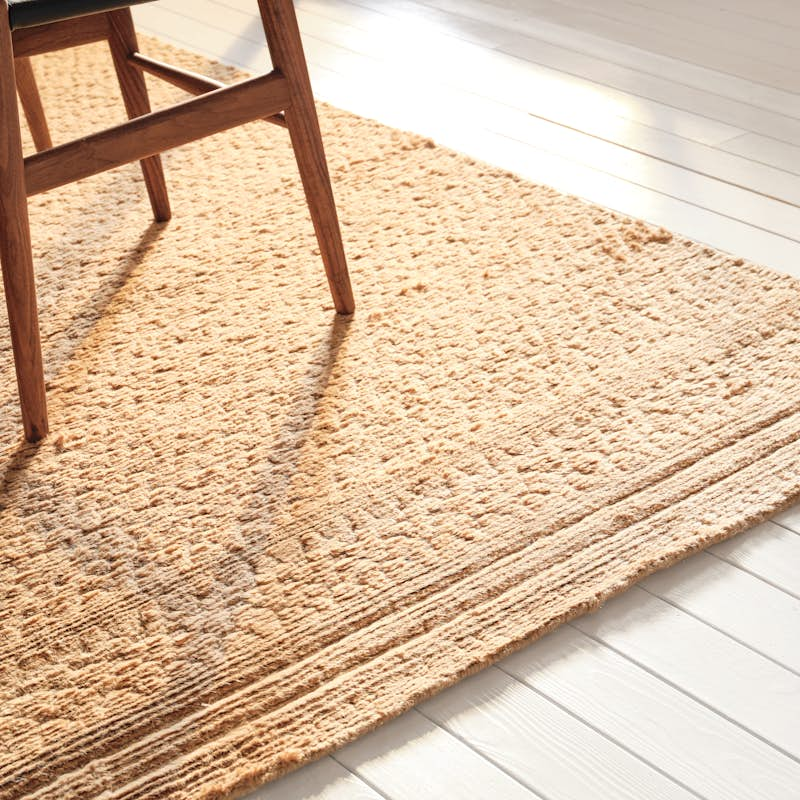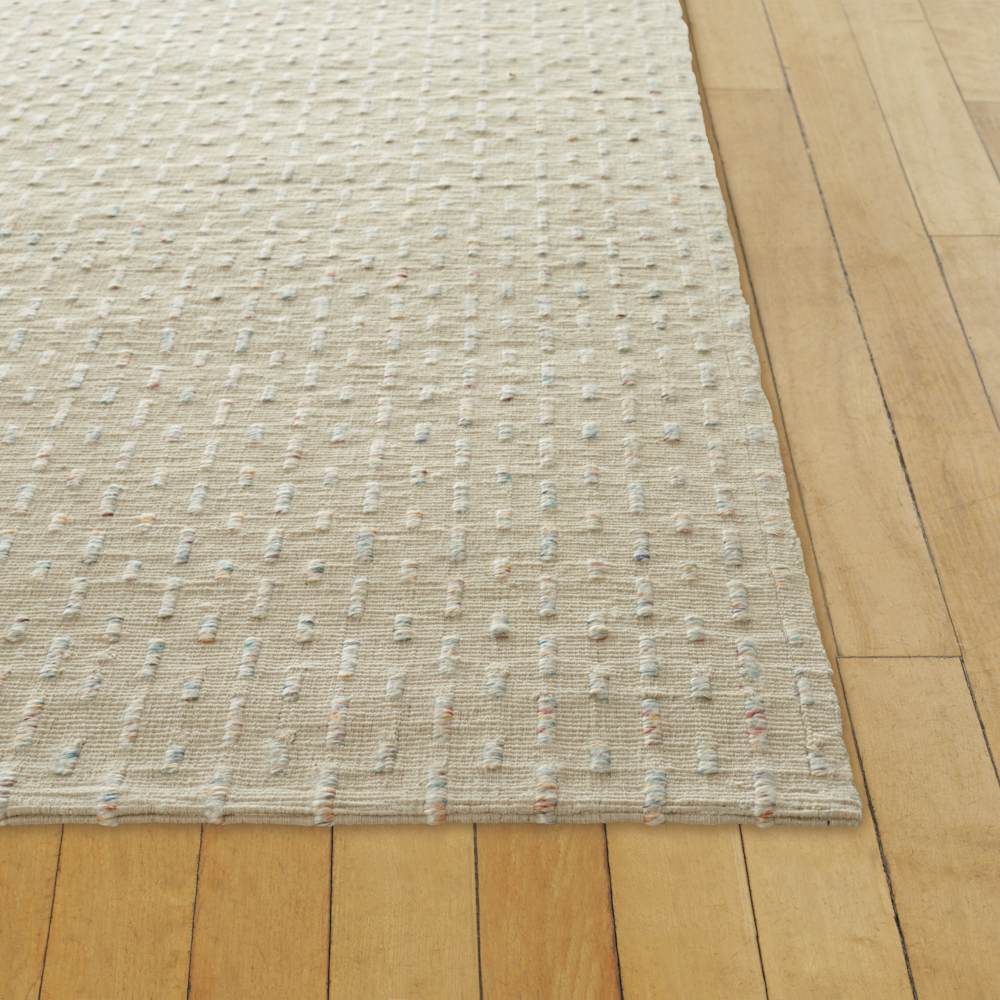Rugs + Runners
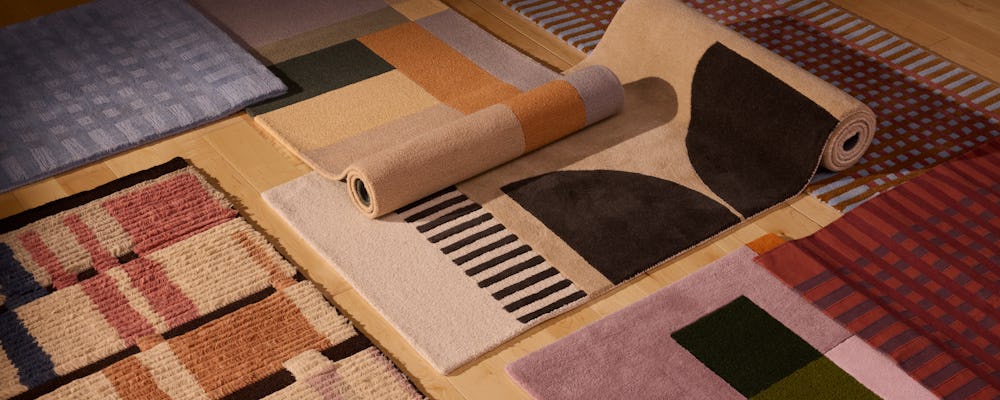
New arrivals
Modern Rugs + Runners
A carefully chosen modern rug can completely transform your space. Functional bathmats, doormats, and runners add softness, color, and character to high-traffic areas. On a larger scale, indoor and outdoor area rugs ground more spacious areas of your home and complement the rest of your furniture and decor.
Many modern area rugs incorporate artistic design elements, including abstract and organic shapes, monochromatic color palettes, color blocking, and playful motifs. In bright colors, a modern floor covering can infuse a space with vibrant character. Or, in muted hues, a contemporary rug can serve as a quietly sophisticated backdrop for the furniture within a space. At Design Within Reach, discover a wide range of designer rugs for myriad settings – but first, learn how to choose the right sizes and materials.
Modern Rug Types + Sizes
Area Rugs
Some of the largest floor coverings available, area rugs can help ground furniture arrangements and delineate space within open concept floor plans. They make ideal living room, bedroom, and dining room rugs. Common large rug sizes include 12’x15’, 9’x12’, and 8’x10’, while 6’x9’, 5’x8’, and 5’x7’ pieces are optimal for smaller spaces. 4’x6’ and 3’x5’ options are a smart choice for foyers, mudrooms, and large entryways. Although rectangles are the most common shape, round, square, and even asymmetrical area rugs may be among the best choices for unconventional spaces.
Outdoor Rugs
Modern outdoor rugs are floor coverings designed specifically for outdoor use, usually on decks and patios. They’re available in a similar size range as indoor options, but they differ in material. Outdoor area rugs should be durable enough to withstand high foot traffic and weather various outdoor conditions. The best outdoor mats resist fading, mold, and pests; they’re water- and moisture-resistant or water-repellant; and they’re easy to clean. Common outdoor rug materials include polypropylene, polyester, and nylon.
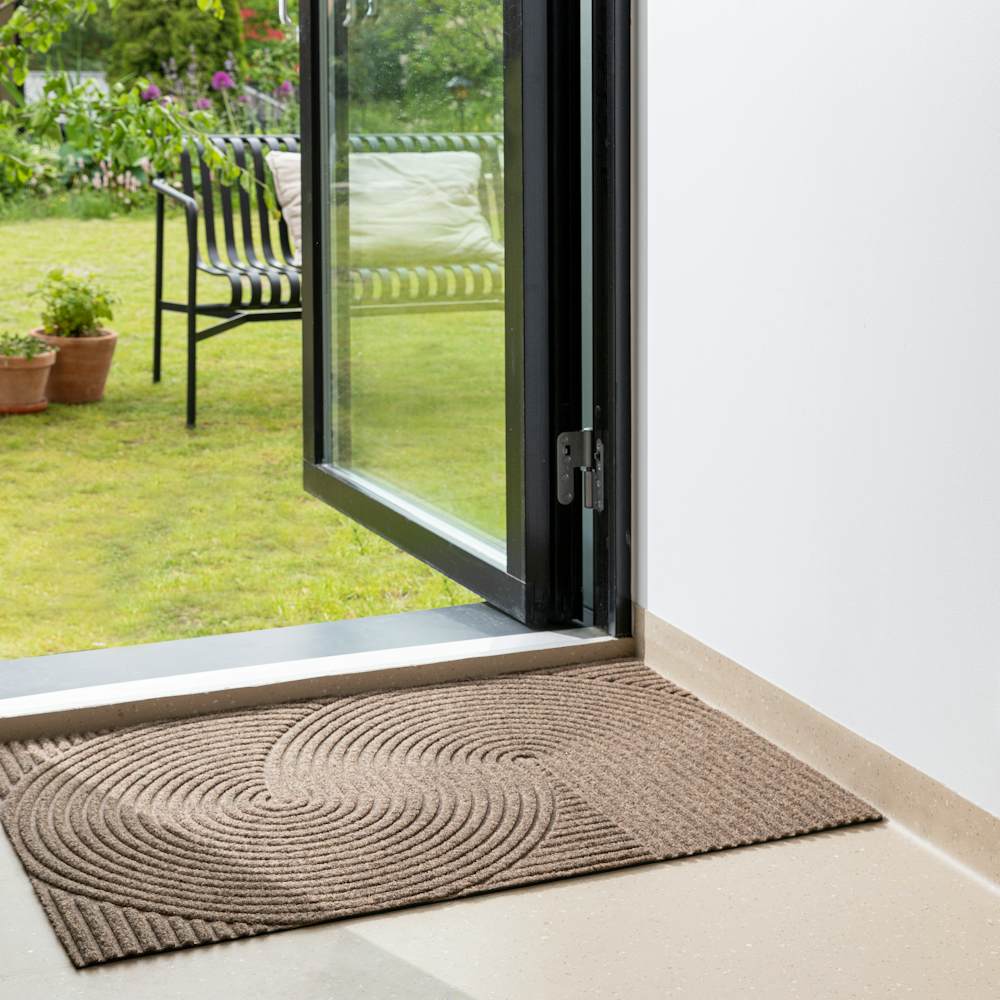
Mats
Mats are small rugs designed to be used as bathmats or door mats. Bathmats are soft and absorbent, made to soak up excess water and provide comfort underfoot near a sink, bathtub, or shower. Door mats or welcome mats, placed just inside or outside entry doors, invite guests to wipe their feet before they enter a home. Standard door mats are 18x30 inches, ideal for single doors. 2’x3’ door mats are made for doors with sidelights. For double doors, choose a 2’x5’, 3’x5’, 3’x6’, or 4’x6’ rug. Bathmats are available within the same size range. Door mats are made of durable, weatherproof materials, such as polyester, coir, and rubber.
Rug Runners
Long and narrow, rug runners are made for narrow spaces, most commonly hallways. They can also provide much-needed warmth and color to kitchen and bathroom floors. Hallway runners are usually two to three feet wide by six to 14 feet long. Durability is essential to runners, so long-lasting materials like polypropylene, nylon, cotton, and wool are good choices. In spaces that are susceptible to moisture – like entryways, kitchens, and bathrooms – choose low-pile water- and dirt-resistant runners. In hallways that tend to echo, choose a high-pile runner that can absorb excess sound.
Modern Rug Materials
How to Choose the Right Rug Size
Choosing the right area rug size is essential for maximizing the visual and functional impact of your piece. A floor covering that is too large or too small can throw off the proportions of your space, which may in turn diminish the impact of the rest of your furniture and decor.
For a living room with a standard conversation set, consider an area rug that fits the entire conversation set with no overhang, or one that fits just the front legs of your sofa and any armchairs. In the first case, choose a large living room rug that extends at least eight inches beyond each side of the conversation set. In the second case, choose a floorcloth that will fit under at least one-third of each chair. But be mindful that it doesn’t extend to the wall – as a rule, there should be about 10 to 24 inches of floor space between your rug and the wall.
In a bedroom with a standard setup, you can choose a bedroom rug that will ground the entire furniture set, a piece that grounds most of the bed and just the front legs of the nightstands, or a piece that grounds the lower two-thirds of the bed and doesn’t reach the nightstands. In each case, you want a bedroom rug that centers underneath the bed with overhang at the foot of the bed, and spans as wide or wider than the furniture positioned on either side of the bed.
A dining room rug should be large enough to fit all four legs of each piece of furniture, including the table and chairs. Ideally, you should choose a piece that mirrors the shape of your dining table (i.e. a round rug for a round table) and is at least two feet wider on all sides than the dining table. This will give you ample space to pull out chairs.
What size rug for a living room?
The right living room rug size will depend on the size of your space, but typically, large pieces – like 12’x15’, 9’x12’, and 8’x10’ options – are great for living rooms.
What size rug is best for a queen bed?
For maximum impact, a rug should be 12 to 18 inches wider than the bed. When placed perpendicular to the bed, a rug under a queen bed should be at least seven feet long.
What size rug is best for a king bed?
A rug under a king bed should be at least eight to nine feet long.
